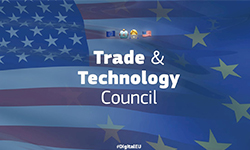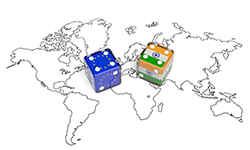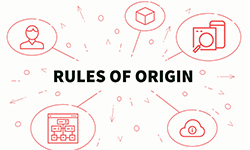BusinessEurope Headlines No. 2021-26
Green and digital transitions: how to make them succeed

“European business strongly supports the EU Industrial Strategy, but for the green and digital transitions to succeed we need a supportive regulatory framework, investments and an international level playing field”, said BusinessEurope Director General Markus J. Beyrer at the online conference organised by the SPD Economic Forum on 10 September. At the high-level panel on the EU Industrial Strategy, speakers discussed the role of business, the interplay of private and public investment and the preconditions for a globally competitive EU economy. The Director-General of the Directorate-General for Internal Market, Industry, Entrepreneurship and SMEs, Kerstin Jorna, the Director General of the European Investment Bank, Gunnar Münt and the Head of the Brussels Office of the Cologne Institute for Economic Research IW, Sandra Parthie, also participated. On the needs for a successful green and digital transition, Beyrer highlighted the importance of having not only clear targets and sufficient amounts of public and private investment, but also a comprehensive concept and practical considerations on how to achieve those targets.
Contact: Daniele Olivieri
Business priorities for the Trade and Technology Council to deliver
 Ahead of the first meeting of the EU-US Trade and Technology Council (TTC) that will be held on 29 September in Pittsburgh, BusinessEurope sent a letter to the European Commission’s Executive Vice-Presidents Dombrovskis and Vestager on priorities for the European business community. “The TTC is an important initiative that is in line with what BusinessEurope has asked in its strategic paper 'EU-US how to build a positive agenda' – a permanent structure of dialogue that can span across different political cycles”, said BusinessEurope Director General Markus J. Beyrer. The TTC should be used to address existing bilateral irritants and challenges, like the additional duties on steel and aluminium; be a sounding board to discuss measures on both sides that could potentially have an impact on the Transatlantic relationship, thus preventing possible conflicts later on; coordinate joint actions and possibly align positions in new emerging technological areas, in particular in the digital sphere (6G, quantum, etc), but also in face of global challenges like climate change and sustainable finance, the WTO reform or the way to address overcapacity and industrial subsidies. “Finally, for the TTC to be effective, it is also important to ensure that business can feed in the discussions in a structured and consistent way”, concluded Beyrer.
Ahead of the first meeting of the EU-US Trade and Technology Council (TTC) that will be held on 29 September in Pittsburgh, BusinessEurope sent a letter to the European Commission’s Executive Vice-Presidents Dombrovskis and Vestager on priorities for the European business community. “The TTC is an important initiative that is in line with what BusinessEurope has asked in its strategic paper 'EU-US how to build a positive agenda' – a permanent structure of dialogue that can span across different political cycles”, said BusinessEurope Director General Markus J. Beyrer. The TTC should be used to address existing bilateral irritants and challenges, like the additional duties on steel and aluminium; be a sounding board to discuss measures on both sides that could potentially have an impact on the Transatlantic relationship, thus preventing possible conflicts later on; coordinate joint actions and possibly align positions in new emerging technological areas, in particular in the digital sphere (6G, quantum, etc), but also in face of global challenges like climate change and sustainable finance, the WTO reform or the way to address overcapacity and industrial subsidies. “Finally, for the TTC to be effective, it is also important to ensure that business can feed in the discussions in a structured and consistent way”, concluded Beyrer.
![]() Contact: Eleonora Catella
Contact: Eleonora Catella
Image copyright : European Commission
Revised fiscal framework: proper enforcement is key
 Proper enforcement of the Stability and Growth Pact, preferably with simplified rules and reduced pro-cyclicality, will be essential to help EU Member States put their public finances on a sustainable footing in the medium-term and strengthen investment confidence. This was the key message of BusinessEurope Economics Director, James Watson at the hearing organised by the European Economic and Social Committee (EESC) on 10 September on “Reshaping the EU Fiscal Framework for a Sustainable Recovery and a Just Transition”. James further noted that “the current low-interest rate environment provides some flexibility regarding the pace at which debt levels need to be reduced, provided this is employed wisely by focusing on productive investment and reforms that create fiscal space for future crises”. BusinessEurope set out a full position paper on the revision of the EU's economic governance framework in May 2021
Proper enforcement of the Stability and Growth Pact, preferably with simplified rules and reduced pro-cyclicality, will be essential to help EU Member States put their public finances on a sustainable footing in the medium-term and strengthen investment confidence. This was the key message of BusinessEurope Economics Director, James Watson at the hearing organised by the European Economic and Social Committee (EESC) on 10 September on “Reshaping the EU Fiscal Framework for a Sustainable Recovery and a Just Transition”. James further noted that “the current low-interest rate environment provides some flexibility regarding the pace at which debt levels need to be reduced, provided this is employed wisely by focusing on productive investment and reforms that create fiscal space for future crises”. BusinessEurope set out a full position paper on the revision of the EU's economic governance framework in May 2021
![]()
Contact: James Watson
Input to the EU-India trade and investment negotiations
 BusinessEurope has drafted and shared with the relevant EU institutions its initial input for the trade and investment negotiations with India. The comprehensive paper shows that BusinessEurope’s members are keen to find solutions for long-standing market access issues with India. While this is an exercise which proved to be difficult during previous negotiations, BusinessEurope considers that the economic and geostrategic importance of India, as well as the huge potential of its market are worth the effort. We look forward to continuing to provide input during the negotiation process and hope that the level of ambition will be maintained and the final agreement will be comprehensive.
BusinessEurope has drafted and shared with the relevant EU institutions its initial input for the trade and investment negotiations with India. The comprehensive paper shows that BusinessEurope’s members are keen to find solutions for long-standing market access issues with India. While this is an exercise which proved to be difficult during previous negotiations, BusinessEurope considers that the economic and geostrategic importance of India, as well as the huge potential of its market are worth the effort. We look forward to continuing to provide input during the negotiation process and hope that the level of ambition will be maintained and the final agreement will be comprehensive.
![]() Contact: Elena Suárez
Contact: Elena Suárez
Webinar on the implementation of Pan-Euro-Mediterranean rules of origin
 BusinessEurope organised a webinar on the implementation of the new Pan-Euro-Mediterranean (PEM) Convention Rules of Origin (RoO) with presentations from the European Commission Directorates-General for Taxation and Customs Union (DG TAXUD) and for Trade (DG Trade). Participants discussed three main issues: the differences between the PEM Convention RoO and the new transitional (revised) rules; the impact of the new changes for suppliers and exporters within the EU and within the broader PEM zone; and the new tools that will help with the implementation (i.e. ROSA - Rules of Origin Self-assessment tool of Access2Markets, the Guidance on Transitional PEM RoO, issued by the Commission, and the upcoming matrix, showing allowed diagonal cumulation amongst contracting parties). More information on the PEM Convention can be found here.
BusinessEurope organised a webinar on the implementation of the new Pan-Euro-Mediterranean (PEM) Convention Rules of Origin (RoO) with presentations from the European Commission Directorates-General for Taxation and Customs Union (DG TAXUD) and for Trade (DG Trade). Participants discussed three main issues: the differences between the PEM Convention RoO and the new transitional (revised) rules; the impact of the new changes for suppliers and exporters within the EU and within the broader PEM zone; and the new tools that will help with the implementation (i.e. ROSA - Rules of Origin Self-assessment tool of Access2Markets, the Guidance on Transitional PEM RoO, issued by the Commission, and the upcoming matrix, showing allowed diagonal cumulation amongst contracting parties). More information on the PEM Convention can be found here.
Contact: Elena Suárez
Calendar 
- 19-22 September: XXII World Congress on Safety and Health at Work
- 20-22 October: European Forum for New Ideas 2021
- 25-29 October: EU Sustainable Energy Week
- 31 October - 12 November: United Nations Climate Change Conference (COP26)
Not yet a subscriber? Register here.
Reminder: please have a look at our privacy policy